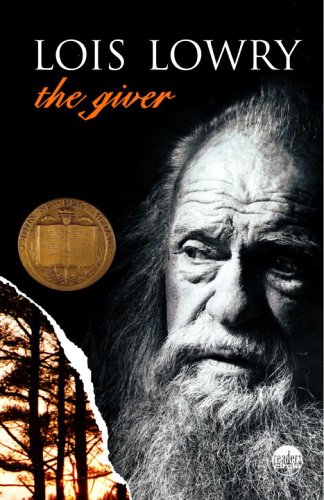All Nonfiction
- Bullying
- Books
- Academic
- Author Interviews
- Celebrity interviews
- College Articles
- College Essays
- Educator of the Year
- Heroes
- Interviews
- Memoir
- Personal Experience
- Sports
- Travel & Culture
All Opinions
- Bullying
- Current Events / Politics
- Discrimination
- Drugs / Alcohol / Smoking
- Entertainment / Celebrities
- Environment
- Love / Relationships
- Movies / Music / TV
- Pop Culture / Trends
- School / College
- Social Issues / Civics
- Spirituality / Religion
- Sports / Hobbies
All Hot Topics
- Bullying
- Community Service
- Environment
- Health
- Letters to the Editor
- Pride & Prejudice
- What Matters
- Back
Summer Guide
- Program Links
- Program Reviews
- Back
College Guide
- College Links
- College Reviews
- College Essays
- College Articles
- Back
The Giver by Lois Lowry
**Spoiler Warning! In this review, I will talk openly about the book and all of the events that occur in the story. Please understand that I am doing this only for the sake of a good review. If you wish to finish the book before reading this review, by all means, do so.**
The Giver by Lois Lowry was an excellent book and one of my favorite books of all time. I read it in seventh grade English class, and I adored it!
The book is about a futuristic community, perhaps on another planet, people say, but I have determined that it is indeed on earth. I have come to the conclusion that the community wanted to end poverty, hunger, segregation, racism, and other civil issues that plague us today by making every single person in the community the same. The people are stripped of their individuality. They wear a tunic every day. Meals are delivered to their “dwellings”. Money or bartering does not exist; everything is free, in a sense. There are no hills, or weather, or even colors. Hills would make transporting goods difficult, weather would make farming complicated, and colors would promote racism and discrimination. The people in the community do not even see in color; just black and white.
Jonas is the main character in the book. When he turns twelve, he goes to the Ceremony of Twelve; one of the Ceremonies the communities has for each child. In the Ceremony of Twelve, each twelve-year-old receives his Assignment, or Occupation, for the rest of his or her life. Jonas has been Assigned, or rather, Chosen, to be the Receiver.
Being the Receiver is not all fun and games, as Jonas finds out on the first day. Because of his uniqueness, Jonas is able to do something the others in the community cannot do: Receive memories of the past from the Giver, a mysterious elderly gentleman.
The memories Jonas receives are lovely at first: a sled ride, for example. But then, the Giver must transfer some more painful memories of the past: Getting sunburn, breaking a leg, hunger, neglection, war. At which point Jonas basically says “No more! It’s terrible!” But he knows he must go on. He must keep going because the Giver isn’t getting any younger, and sooner or later he will die, and the memories will go back to the people, as they have once before. The people cannot cope the way Jonas can, because they are not the same as him. Jonas is special.
So Jonas keeps visiting the Giver, and he receives not bad memories, per se, but more. . . confusing memories. Why is there a tree inside the house? What is that peculiar thing the people are doing? (He later finds out that it is music). Who are those elders in the background? Why are they hugging, and cuddling like they are? The memory Jonas received that day was a memory of Christmas and of Love. He learns about Grandparents.
Believe it or not, it is true: the Community does not have love either. There are no “true” mothers and fathers. Some women are assigned the job of Birthmother, in which they receive an injection of sperm. They have three children (who they never get to see) then do hard labor for the rest of their life. Actually, the people in the Community do not have sexual thoughts at all. Whenever someone has such a thought, which they call a “stirring”, that person takes pills. As long as they take the pills, they will not have sexual thoughts, which are deemed “bad” by the Elders.
Eventually, Jonas learns that a small child his father has been caring for is in danger, because he did not develop quickly enough. He learns from the Giver how little Gabe will die, and finds that he cannot take it anymore. The community is harsh, and unkind, and he must get away because he simply can’t live this way anymore. He wants to sing, and have Grandparents, and Love. He runs away from his dwelling late at night, and start the frightening journey ahead.
As I have mentioned earlier, this book is a wonderful read. In fact, I finished the last half in one sitting. The word choice is superb, and the plot unpredictable. If you read the dedication, it says “For the people to whom we entrust the future”. This means that if we try to get rid of all the terrible things in this world, we might accidentally get rid of the good things as well. The gamble is not worth it, the risk far too great.
I recommend this book to anyone who wants a book that will change the way they think forever.
Similar Articles
JOIN THE DISCUSSION
This article has 1 comment.


1 article 0 photos 5 comments